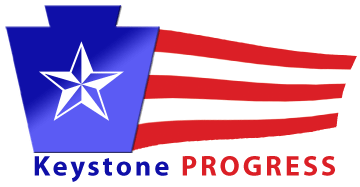Public News Service-PA
(05/07/12) HARRISBURG, Pa. - A bill before Congress aimed at enhancing cyber-security could leave individuals' personal information exposed to government and corporate misuse, according to Internet freedom advocates. The bill, called CISPA, is in a way a successor to SOPA and PIPA, the anti-piracy measures that were shot down in January after an outcry over censorship concerns. The issue here is privacy.
Rainey Reitman, activism director for the Electronic Frontier Foundation, says that if CISPA is passed ...
"Companies can intercept the communications of everyday Internet users; they can spy on your personal emails, on your instant messages, your text messages, and share that information directly with the government."
Some large companies like Microsoft, IBM and Facebook are in favor of CISPA in part because it would let the government inform companies about cyber-threats more expeditiously. Facebook says it has no intention of sharing sensitive personal information with the government.
Reitman says Facebook's promise isn't enough.
"That is something that Facebook has said it doesn't intend to do. However, I think that's small comfort for those of us who actually have data that is being held by Facebook."
Reitman acknowledges there are threats to America's cyber-security, but she says CISPA has flaws when it comes to civil liberties.
"We don't want hackers getting ahold of Social Security numbers, but we also have to remember that we don't want data to go to the United States government. We have a structure in place that means that if the government wants to get access to certain information, they have to go to a court and get a court order."
Reitman says the House version of CISPA now heads to the Senate where it could be taken up by the third week of May.
The Cyber Intelligence Sharing and Protection Act is HR 3523.
Rainey Reitman, activism director for the Electronic Frontier Foundation, says that if CISPA is passed ...
"Companies can intercept the communications of everyday Internet users; they can spy on your personal emails, on your instant messages, your text messages, and share that information directly with the government."
Some large companies like Microsoft, IBM and Facebook are in favor of CISPA in part because it would let the government inform companies about cyber-threats more expeditiously. Facebook says it has no intention of sharing sensitive personal information with the government.
Reitman says Facebook's promise isn't enough.
"That is something that Facebook has said it doesn't intend to do. However, I think that's small comfort for those of us who actually have data that is being held by Facebook."
Reitman acknowledges there are threats to America's cyber-security, but she says CISPA has flaws when it comes to civil liberties.
"We don't want hackers getting ahold of Social Security numbers, but we also have to remember that we don't want data to go to the United States government. We have a structure in place that means that if the government wants to get access to certain information, they have to go to a court and get a court order."
Reitman says the House version of CISPA now heads to the Senate where it could be taken up by the third week of May.
The Cyber Intelligence Sharing and Protection Act is HR 3523.

No comments:
Post a Comment